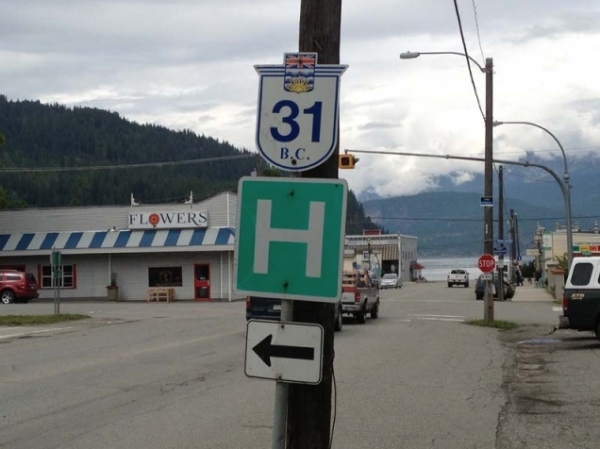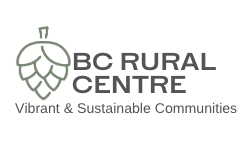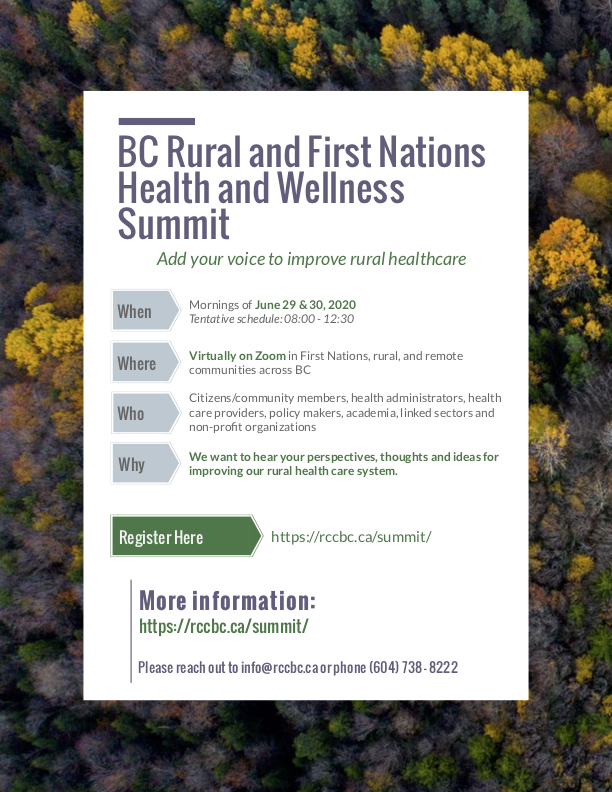
BC Rural & First Nations Health & Wellness Summit
Add your voice to improve rural healthcare!
Collaboration can be a powerful tool for change.
In January 2019, provincial healthcare partners met to explore how to work together to improve and transform rural healthcare in BC. Since that time, several innovations were developed to improve healthcare services in rural communities and First Nations. The arrival of Covid-19 in BC accelerated the rollout of these innovations.
For example:
- Through the Real Time Virtual Support (RTVS) initiative, all BC rural physicians and nurse practitioners were offered access to a secure videoconference tool at the beginning of the pandemic, so they could continue to see patients — virtually. This innovation allows patients to stay safely at home while receiving care from a trusted provider, and even allows patients to meet with specialists for some appointments, reducing the need to travel out of community for care.
- RUDi and ROSe, two Real Time Virtual Support (RTVS) services, allow rural physicians or nurse practitioners to consult with other physicians about patients and/or medical situations that aren’t that commonly seen. By being able to quickly talk with colleagues – and showing them via video what the situation may involve – rural providers are supported in treating folks in the communities where they live, or in coordinating transport to the nearest centre that can treat the condition.
- First Nations Virtual Doctor of the Day is a program that connects BC First Nations citizens without a doctor to a physician service, either by phone or by video. This program – a collaboration between First Nations Health Authority and the Rural Coordination Centre of BC – can be accessed from anywhere in the province, providing connections to care whether the patient is in community, or traveling away from home.
- During the Covid-19 pandemic, Northern Health, First Nations Health Authority, and the BC Government committed to a collaborative framework aimed at improving healthcare travel for rural patients. This commitment will enable more ambulances and air transports out from community as needed, and will also fund accommodations for rural patients who need to leave their communities to seek health services. This framework is the start of a longer conversation about how rural health services can be improved for the long term throughout the province.
Rural and First Nations citizens know better than anyone what the major health & wellness issues they face are. None of the innovations referenced above could have happened without input from people living and working in rural/remote/First Nations BC.
So what’s next?
You are cordially invited to attend the upcoming BC Rural and First Nations Health and Wellness Summit on June 29 + 30. Come contribute your voice, your stories, and your ideas for transforming healthcare in your community and throughout the province.
Sign up for this free two-day event at https://rccbc.ca/summit


